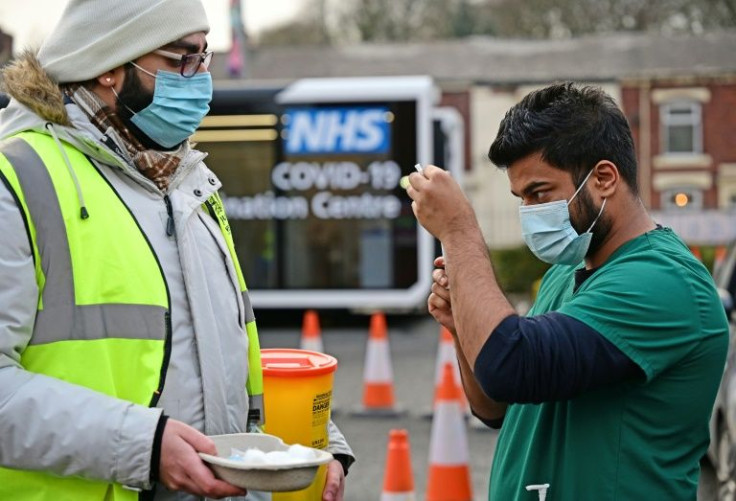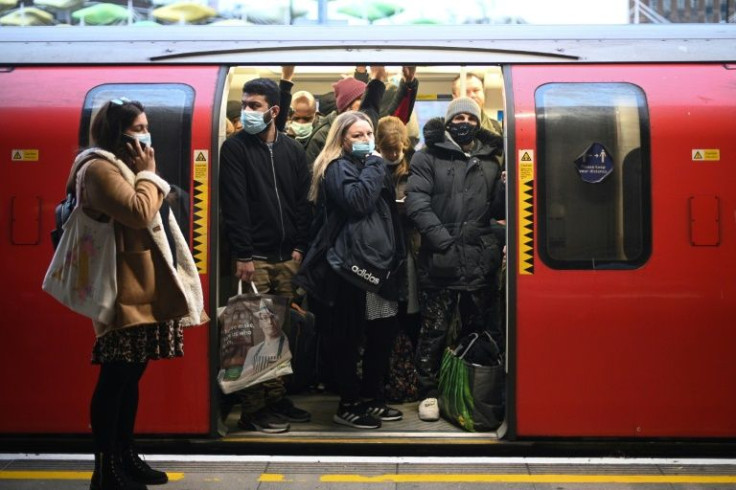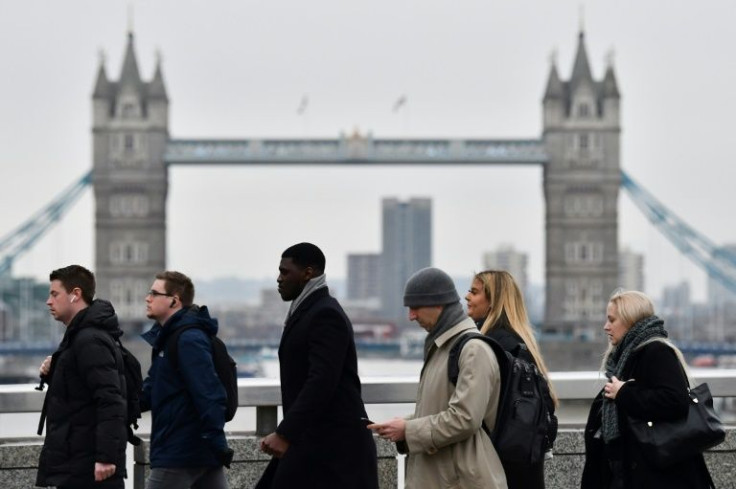Return To 'Plan A': England Lifts Omicron Curbs
Commuters trooped back to the office in England on Thursday, with public transport visibly busier, after the government scrapped restrictions imposed to combat the Omicron coronavirus variant.
The return to "Plan A" measures -- ditching legal requirements for face coverings and shelving vaccine passports -- comes as the number of positive Covid-19 cases has fallen sharply from record levels.
Infection rates are still high -- more than 100,000 confirmed cases were recorded on Wednesday -- but are plateauing, easing fears that health services will be overwhelmed.
Prime Minister Boris Johnson said restrictions could be lifted due to "the success of our booster rollout, the tireless work of the NHS and the amazing public response".
But he urged more people to get vaccinated and warned: "The pandemic is not over. Everyone should remain cautious."

Johnson, who was himself infected with Covid in 2020, introduced the so-called "Plan B" restrictions on December 8, after warning of a looming "tidal wave" of Omicron.
Face masks were required in all enclosed spaces and people were told to work remotely. Vaccine documentation to enter places such as nightclubs, football grounds and large-scale events was also controversially required.
In the British capital, public transport was busier after the restrictions were lifted at midnight.

There were mixed feelings about the end to restrictions, which comes after more than 37 million people had booster jabs.
"It's strange, I feel like it's a little bit too soon," said Jess Kelly, 22, who works for the state-run National Health Service.
"I'm from Edinburgh and we still wear masks, so it is a bit odd to see people not wearing masks in London."
James Hughes, 57, said he would still wear a mask when needed.
"I don't think it's back to normal," he told AFP. He saw the move as linked to fury at lockdown-breaking parties at Johnson's Downing Street office.

"I think our beloved prime minister is trying to save his skin and he's trying to get the support of his MPs, his backbenchers and I think this is something they wanted to see, not necessarily the British public."
Jessie Wright, 19, said lifting the restrictions was "a bit scary" but "a massive relief because it's been nearly two years, and being trapped inside or being restricted outside has just been exhausting".
England had lifted restrictions on July 19 last year but then re-introduced them as the Omicron wave hit.
Limits on access to care homes in England will also be scrapped from next week, with residents able to have unlimited visits from family and friends.
Businesses will still be able to impose restrictions but they will no longer be a legal requirement.
On public transport in London, for example, face coverings are still mandatory. But secondary school students will no longer have to wear masks.
US holidaymaker Ethan Letson, 24, agreed with London Mayor Sadiq Khan's decision to keep face coverings as a condition of travel.
"I still wear the mask on public transport. I will wear it in very crowded areas like the Underground. It's so tight down there, you could get sick at any time," he said.
Unlike Scotland and Wales, which set their own health policy, England kept nightclubs and bars open over the festive period.
But businesses still took a heavy hit as people stayed at home. Hospitality workers in the business district around St Paul's said things had only just started to improve.
"The last week, business has started to pick up again. Around Christmas it was dead," said bartender Lewis Colby, 39.
Despite the lifting of restrictions, those who test positive for coronavirus must still self-isolate for a minimum of five days.
Johnson said he also hopes to scrap those rules when they expire on March 24.
© Copyright AFP 2024. All rights reserved.





















